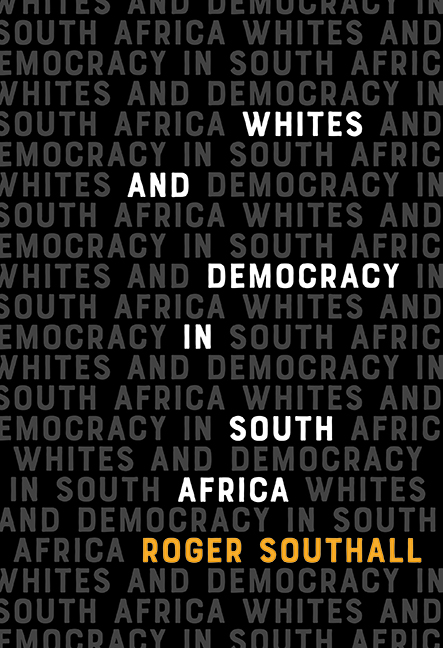11 - Is There Still White in the Rainbow?
Published online by Cambridge University Press: 26 May 2022
Summary
Bill Schwarz observes how at the beginning of the twentieth century, South Africa was deemed by its founders to be a vanguard nation of the white race, inaugurating a new global epoch in which the fruits of modernity would be brought to the southern hemisphere. ‘Such were the passions invested in the idea of the white man's country.’ But just as race as whiteness was the means by which this future civilization could be imagined, so race as non-whiteness proved the greatest obstacle to the realization of these dreams.
Schwarz outlines how the idea of the white man continued to play out to fateful effect in British politics (Brexit being the latest manifestation), long after settler colonialism in Africa had been defeated. But what was to happen to the white man (and woman) left behind in South Africa by history? What was to be their future in a failed settler state?
The relative success of a failed settler state
After decades of white domination, the project of the settler state in South Africa was foiled by the refusal of the natives to play ball. Yet there was no outright triumph for either side. The settler regime was compelled to concede citizenship to all; the natives accepted limitations to their triumph by agreeing a compromise which extended de facto protections to key privileges enjoyed by whites. The outcome was a democracy which, for all its worrying limitations, remains real. This must be counted as a genuine, if relative, success, especially when viewed in comparison to other former settler states such as Kenya and Zimbabwe, where post-colonialism has resulted in brutal political authoritarianisms.
This relative success has been celebrated by Ferial Haffajee, who has been bold enough to pose the wonderfully politically incorrect question: What if there were no whites in South Africa? What she is not trying to do is to make the case, put clumsily by Helen Zille, that for all their faults, colonialism and apartheid provided the infrastructure (roads, rail, medicine, science, etc.) without which black South Africans would never have progressed to modernity. Nor is she offering a defence of whites, the majority of whom she finds to be oblivious to the extent of their privilege.
- Type
- Chapter
- Information
- Whites and Democracy in South Africa , pp. 231 - 250Publisher: Boydell & BrewerPrint publication year: 2022



